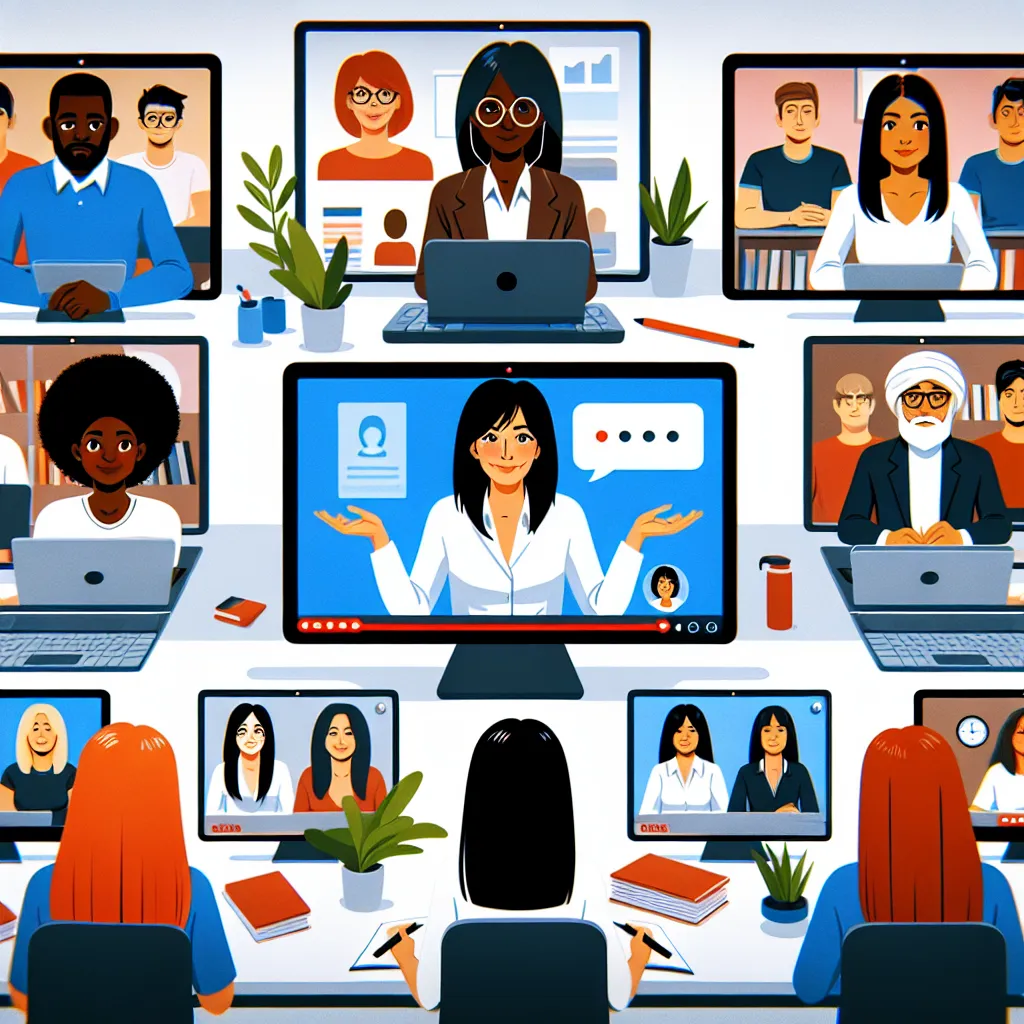The topic “Describe a person who has motivated you to learn something new” is a common and engaging subject in IELTS Speaking tests. It allows candidates to showcase their language skills while discussing personal experiences and relationships. This topic has appeared frequently in past IELTS exams and is likely to remain relevant in future tests. Let’s explore how to approach this topic effectively to achieve a high band score.
Nội dung bài viết
- Part 1: Introduction and Interview
- Q: Do you enjoy learning new things?
- Q: How do you usually learn new skills?
- Part 2: Long Turn (Cue Card)
- Follow-up Questions:
- Part 3: Two-way Discussion
- Q: How do you think technology has changed the way people learn new things?
- Q: Do you think the role of teachers will change in the future due to technological advancements?
- Key Vocabulary and Phrases for High Scores
- Examiner’s Advice
Part 1: Introduction and Interview
In this section, the examiner may ask you some general questions about motivation and learning. Here are some potential questions and sample answers:
Q: Do you enjoy learning new things?
Band 6-7 Answer:
Yes, I do. I find learning new things quite interesting and enjoyable. It helps me broaden my knowledge and skills.
Band 8-9 Answer:
Absolutely! I’m passionate about acquiring new knowledge and skills. Learning not only broadens my horizons but also keeps my mind sharp and helps me stay adaptable in our rapidly changing world.
Q: How do you usually learn new skills?
Band 6-7 Answer:
I usually learn new skills through online courses or by watching YouTube tutorials. Sometimes, I also ask friends or colleagues for help.
Band 8-9 Answer:
I employ a multi-faceted approach to learning new skills. I often enroll in online courses on platforms like Coursera or Udemy, attend workshops, and seek mentorship from experts in the field. Additionally, I’m a firm believer in hands-on practice and experiential learning, so I make sure to apply what I’ve learned in real-life situations whenever possible.
 IELTS Speaking Motivation
IELTS Speaking Motivation
Part 2: Long Turn (Cue Card)
Here’s a sample cue card related to the topic:
Describe a person who has motivated you to learn something new
You should say:
- Who this person is
- What they motivated you to learn
- How they motivated you
- And explain why this motivation was important to you
Band 6-7 Answer:
The person who motivated me to learn something new is my college professor, Dr. Smith. She inspired me to learn about environmental science, which was not my original field of study.
Dr. Smith motivated me through her passionate lectures and by showing us real-world applications of environmental science. She often organized field trips and invited guest speakers, which made the subject more interesting and relevant.
This motivation was important to me because it opened my eyes to the environmental issues we face today. It made me realize that I could contribute to solving these problems, which gave me a new sense of purpose in my studies and career.
Band 8-9 Answer:
I’d like to talk about my college professor, Dr. Emily Smith, who profoundly influenced my academic journey and sparked a passion for environmental science that I hadn’t previously considered.
Dr. Smith, an accomplished environmental scientist with a wealth of field experience, didn’t just teach from textbooks. She brought the subject to life through her captivating lectures, real-world case studies, and hands-on field trips. Her unwavering enthusiasm for the subject was truly contagious, and she had a knack for making complex concepts accessible and exciting.
What set Dr. Smith apart was her ability to contextualize environmental issues within broader social and economic frameworks. She frequently invited guest speakers from various sectors – policymakers, activists, and industry leaders – which provided us with a holistic understanding of environmental challenges and potential solutions.
This motivation was pivotal in shaping my academic and professional trajectory. It opened my eyes to the pressing environmental issues we face and, more importantly, instilled in me a sense of responsibility and the belief that I could contribute meaningfully to addressing these challenges. Dr. Smith’s guidance transformed my perspective, turning what was initially just another course into a calling and a career path.
Her influence extended beyond the classroom, as she encouraged me to pursue internships and research opportunities in the field. This hands-on experience not only solidified my interest but also gave me practical skills that have been invaluable in my career.
In essence, Dr. Smith’s motivation was transformative. It not only expanded my knowledge base but also ignited a passion that continues to drive my professional endeavors and personal commitment to environmental stewardship.
Follow-up Questions:
- How has this new knowledge changed your life?
Band 6-7 Answer:
Learning about environmental science has changed my lifestyle. I’m more conscious about recycling and reducing waste now. It has also influenced my career choices, as I’m now considering a job in this field.
Band 8-9 Answer:
The knowledge I gained has profoundly impacted various aspects of my life. Professionally, it has steered my career towards environmental consultancy, where I can apply my expertise to help businesses adopt sustainable practices. Personally, it has transformed my lifestyle choices – from consciously reducing my carbon footprint to advocating for environmental policies in my community. This newfound awareness has also enriched my worldview, making me more cognizant of the intricate connections between human activities and our planet’s health.
- Do you think it’s important for everyone to have a mentor?
Band 6-7 Answer:
Yes, I think having a mentor is very important. They can guide you and help you avoid mistakes. Mentors can also provide valuable advice based on their experience.
Band 8-9 Answer:
Absolutely, I believe mentorship is invaluable for personal and professional growth. A good mentor can offer insights drawn from their wealth of experience, helping mentees navigate challenges and avoid common pitfalls. They also provide a unique perspective that can broaden one’s horizons and challenge preconceived notions. Moreover, mentors often serve as role models, inspiring their mentees to set higher goals and push beyond their perceived limitations. In today’s rapidly evolving world, having a mentor can be a significant competitive advantage, offering guidance on industry trends and fostering networking opportunities.
Part 3: Two-way Discussion
In this section, the examiner will ask more abstract questions related to the topic. Here are some potential questions and sample answers:
Q: How do you think technology has changed the way people learn new things?
Band 6-7 Answer:
Technology has made learning more accessible. We can now take online courses and watch educational videos anytime, anywhere. It has also made it easier to connect with experts and other learners around the world.
Band 8-9 Answer:
Technology has revolutionized the learning landscape in numerous ways. Firstly, it has democratized access to information, making high-quality educational resources available to anyone with an internet connection. This has leveled the playing field to a significant extent, allowing individuals from diverse backgrounds to access knowledge that was once limited to elite institutions.
Moreover, technology has transformed the learning experience itself. Interactive platforms, virtual reality simulations, and artificial intelligence-powered adaptive learning systems have made education more engaging and personalized. These tools can tailor content to individual learning styles and pace, maximizing retention and understanding.
Additionally, technology has facilitated collaborative learning on a global scale. Online forums, video conferencing, and collaborative project platforms allow learners to engage with peers and experts worldwide, fostering a rich, diverse learning environment that transcends geographical boundaries.
However, it’s important to note that while technology offers immense opportunities, it also presents challenges such as information overload and the need for digital literacy. Striking a balance between technological tools and traditional learning methods remains crucial for comprehensive education.
Q: Do you think the role of teachers will change in the future due to technological advancements?
Band 6-7 Answer:
Yes, I think the role of teachers will change. They might become more like guides or facilitators, helping students navigate through the vast amount of information available online. Teachers will probably need to be more tech-savvy in the future.
Band 8-9 Answer:
The role of teachers is indeed likely to evolve significantly in response to technological advancements. Rather than being the primary source of information, teachers are increasingly becoming facilitators of learning and curators of knowledge.
In this new paradigm, teachers will likely focus more on developing critical thinking skills, fostering creativity, and guiding students in applying knowledge to real-world problems. They will need to be adept at leveraging technology to enhance the learning experience, blending digital tools with traditional teaching methods.
Moreover, as artificial intelligence and machine learning continue to advance, teachers may be freed from routine tasks like grading, allowing them to dedicate more time to personalized instruction and mentoring. This shift could lead to a more holistic approach to education, where teachers can focus on students’ emotional intelligence, social skills, and overall well-being – aspects that are crucial for success but often overlooked in traditional academic settings.
However, it’s important to note that while the role of teachers will change, their importance will not diminish. The human element in education – the ability to inspire, empathize, and adapt to individual student needs – remains irreplaceable. The challenge for educators will be to strike a balance between embracing technological innovations and maintaining the personal touch that is fundamental to effective teaching.
Key Vocabulary and Phrases for High Scores
-
Profoundly influenced /prəˈfaʊndli ˈɪnfluənst/ (phrasal verb): Had a deep and significant effect on.
Example: “The experience profoundly influenced my career choice.” -
Spark a passion /spɑːrk ə ˈpæʃən/ (idiom): To ignite enthusiasm or strong interest in something.
Example: “The workshop sparked a passion for photography in many participants.” -
Bring something to life /brɪŋ ˈsʌmθɪŋ tə laɪf/ (idiom): To make something more interesting or exciting.
Example: “The teacher’s animated style brought the history lesson to life.” -
Pivotal /ˈpɪvətl/ (adjective): Of crucial importance in relation to the development or success of something else.
Example: “Her decision to study abroad was pivotal in shaping her future career.” -
Revolutionize /ˌrevəˈluːʃənaɪz/ (verb): To change something radically or fundamentally.
Example: “The internet has revolutionized the way we communicate and access information.” -
Democratize access /dɪˈmɒkrətaɪz ˈækses/ (phrase): To make something available to everyone.
Example: “Online courses have helped to democratize access to higher education.” -
Level the playing field /ˈlevl ðə ˈpleɪɪŋ fiːld/ (idiom): To create a situation in which everyone has a fair and equal chance of succeeding.
Example: “New regulations aim to level the playing field for small businesses competing with large corporations.”
Examiner’s Advice
To achieve a high score in the IELTS Speaking test, particularly when discussing a person who has motivated you to learn something new, consider the following tips:
-
Use a range of vocabulary: Incorporate advanced and topic-specific vocabulary to demonstrate your language proficiency. Use synonyms and avoid repetition.
-
Employ various grammatical structures: Use a mix of simple and complex sentences. Include conditional sentences, relative clauses, and perfect tenses where appropriate.
-
Be specific and provide examples: When describing the person and their influence, give concrete examples and details to make your answer more engaging and authentic.
-
Show reflection and depth: Don’t just describe events; explain their significance and how they affected you. This demonstrates critical thinking skills.
-
Maintain fluency: Practice speaking on various topics to improve your ability to speak at length without hesitation. Use linking words and phrases to connect your ideas smoothly.
-
Work on pronunciation: Focus on clear articulation, proper stress on words, and appropriate intonation to enhance the overall delivery of your speech.
-
Stay relevant: Always keep your answers relevant to the question asked. It’s okay to briefly pause and gather your thoughts before responding.
-
Be honest and personal: While it’s good to prepare, avoid memorizing answers. Examiners appreciate genuine, personalized responses.
Remember, practice is key to improving your speaking skills. Regular practice with a variety of topics will help you feel more confident and perform better in the actual test.
For more tips on improving your IELTS Speaking skills, you might find our article on describing a person who has encouraged you to be more active online helpful. Additionally, learning about the benefits of remote learning can provide you with valuable insights and vocabulary for discussing educational topics in your IELTS Speaking test.


